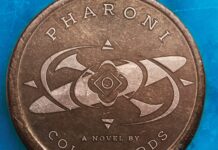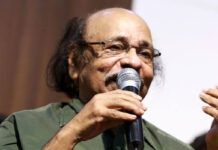Interviewed by Rajesh Subramanian
Danijela Trajković is a Serbian author and translator. Her works have been featured extensively in various poetry anthologies. Only a few literary authors extend their creative skills into the art of translation as well and she is one among them. In this interview she answers a wide array of questions about her literary journey.
Could you please explain how you got interested in creative literature?
Well, I believe it was God’s wish for me to write, as I believe everything that happens, happens for a reason. I write because I feel the need for it. I started writing for myself, but makes me happy when readers also enjoy my work.
What motivated you towards translating works of other authors? You translate mostly from the Serbian to English. Do you also translate from other languages as well into English?
I like innovations. I don’t like to be the second or third translator of any work. So, I look for the poets who are unknown in my country but at the same time whose work is worthy of being translated. I read a lot of world contemporary poetry and that’s how I get the material from which I select a poem that ‘caught my eye ‘ and I give it ‘one more life’ in Serbia or abroad. I can translate from Macedonian or Greek into English as well, but haven’t had it into my schedule yet, though I translated some poems by Giorgos Seferis from Greek into Serbian which were published into a journal and our national newspaper Večernje novosti.
Which do you enjoy most – translations or original work by yourself?
Definitely the original work by myself. Especially my poems which are part of my soul, the most intimate feelings that met not only the heaven, but hell as well, and I strive to bring into my world of poetry the impressions of both the journeys.
What challenges does a literary translator face generally? Do you have the experience of having encountered any kind of unique challenges?
Any new, good, untranslated poem is a challenge for me. Preserving the life of such a poem into the translated version is generally a challenging task.
Could you please describe in brief about your recent book, “22 Wagons ” ?
It has been almost a year since my first book was published. It traveled a lot through social media, got good reviews in Serbian journals. Many people have shown curiosity to read it. It’s a book that brings 22 excellent Anglophone contemporary poets to Serbia, which was my main goal. I believe modern readers should read their contemporaries and keep a little distance from the poets of previous centuries because I believe we should live in the present, be familiar with it, and of course, have some knowledge of what has gone, what was popular and keeps being valuable today, here speaking about a simple reader. From the other hand, the ones who are seriously into literature should know much more for the reasons you can realize yourself. Serbia is, unfortunately, is a country which is late in almost everything by two centuries. For example, the UK has had its underground since 1863 and we are going to have it this century. At universities the students who study English literature, even most of the professors, have no idea of contemporary poetry and poets. ‘22 Wagons ‘ is an attempt to change this slow opening of the shutters of Serbian literary window to today’s literature.
How old is Serbian literature and which are the major literary works?
The first saved document of our literature is Miroslav Gospel, a manuscript dating from around 1180. By its style which is a mixture of the influences from the West and the East, the Miroslav Gospel is a unique manuscript of its kind in the region, as well as in the world. By its beauty and uniqueness the Miroslav Gospel will influence other later literary manuscripts of the region, as well as of the Medieval Europe. This manuscript represents the most precious and significant document in cultural heritage of Serbia and is included in Memory of the World by UNESCO. The other major Serbian literary works are numerous, as our literature is very rich. I can name some titles here as Bad Blood by Borisav Stanković, who was from my hometown. This novel by him is considered as the first true modern psychological novel written in Serbian. Another great novel is The Bridge on the Drina, by Ivo Andrić who won the Nobel Prize in Literature in 1961. Dictionary of the Khazars, by Milorad Pavić, upon its release, was hailed as “the first novel of the 21st century.” In Vain Do I Wake Her, a poetry collection by Branko Miljković, also merits mention here.
Have you ever attempted writing a novel? If not, why?
I haven’t. I can’t see myself writing one yet.
What breeds your creativity? How do you preserve such creative bursts? Typically, how do you plan writing any piece of work?
I never plan my writing. I think it’s the opposite.
How is the current literary trend in the Balkan languages? Which languages are very active in contemporary literature?
There is an almanac, Balkan Poetry Today, edited by Tom Phillips, which is a very good indicator of the current scenario of Balkan poetry. In the Balkans live different nations, speaking different languages, Christians and Muslims, but all their poets show the characteristics of belonging to the genre of 21st century writing. There are many good poets from each Balkan country.
What is the influence of politics and social conditions on Serbian literature?
As during the past centuries, I have noticed that the influence of politics and social conditions always have some influence on literature. Serbia is no exception. But, how strong this influence is depends on an author. Every day all of us get into different situations, though living in the same world. Do all of the poets or writers have the same inspirations or needs for being creative? Of course, not. Each of them creates his / her own world, a home for himself / herself.
What are your current/ future literary projects?
My priority is my first collection of poetry. I work on it. Also, my first short story collection is almost done.
Among the poems written by you, which is your most favourite one?
I love all my poems. But if I must choose my favorites the ones that I can mention are Return and Home.















